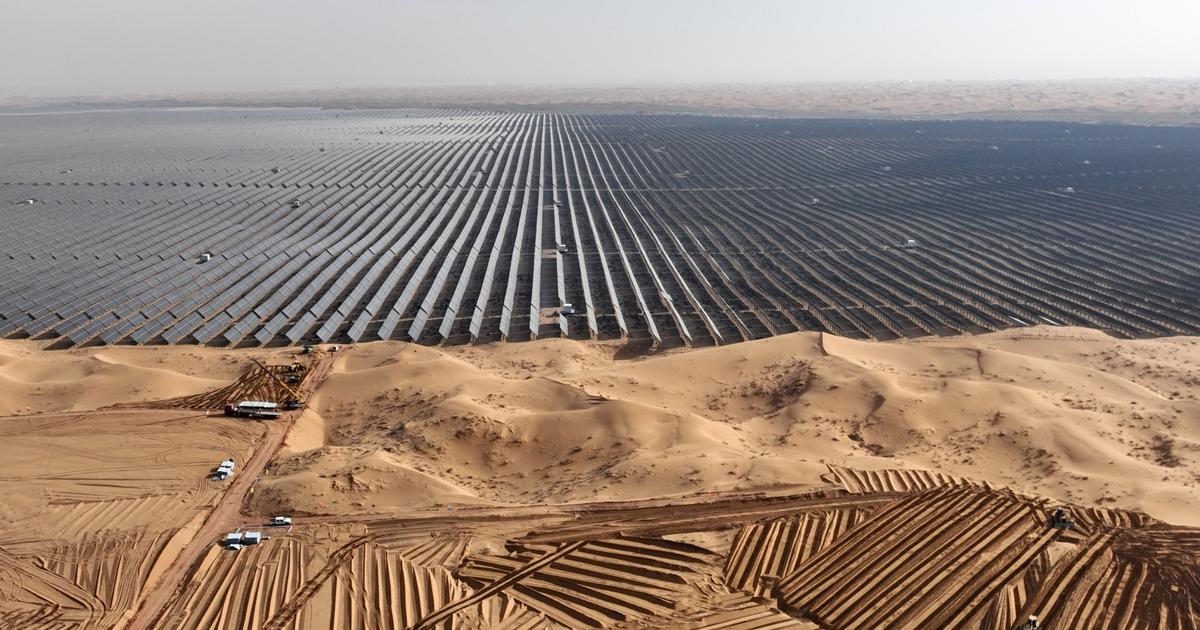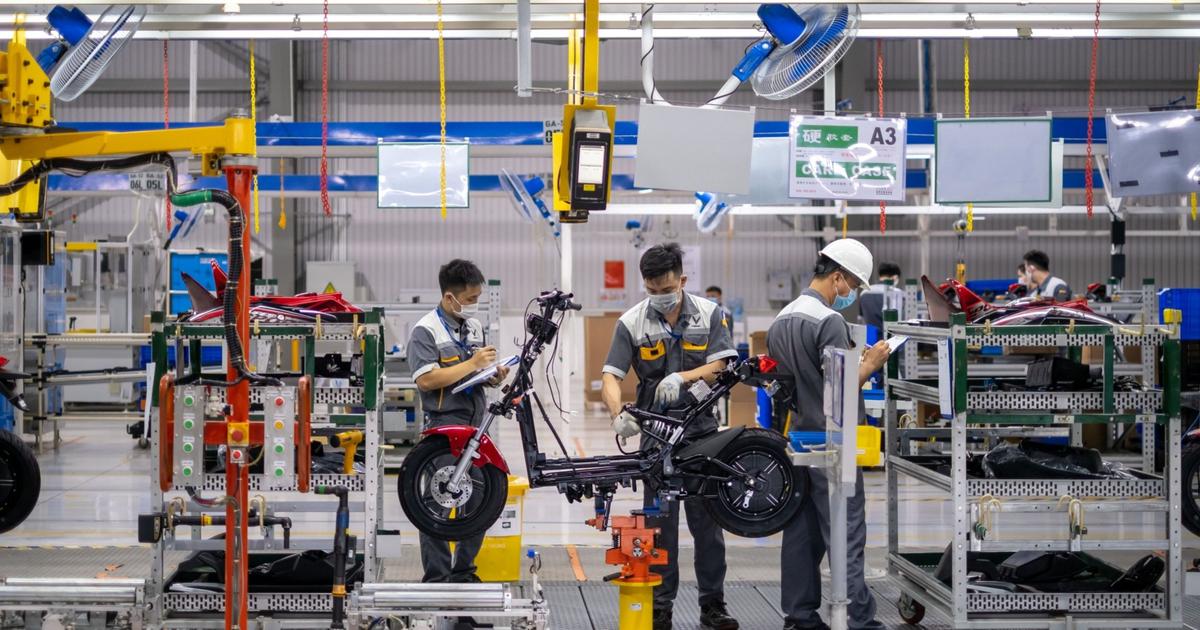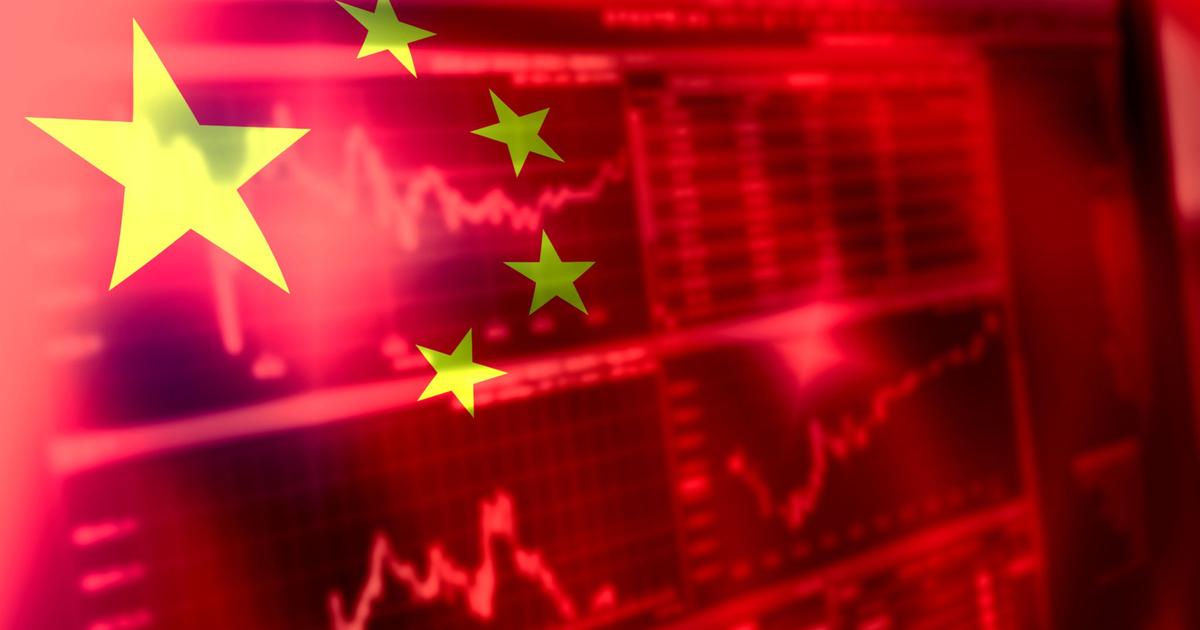View of the financial district of Pudong, in Shanghai (China) Andy Wong / AP
Global investors are beginning to distrust China.
Not only are they concerned about the expected economic slowdown, but their main uneasiness stems from the announcement of the president's new policy, Xi Jinping, dubbed "community prosperity" and which seeks to put the citizen before business profit.
A term that Chairman Mao Zedong coined but had fallen into disuse for decades: Xi Jinping has repeated it 65 times in speeches this year.
And it has not sat markets very well, as the MSCI China stock index fell 12% in the last month and is down almost 18% in the last two months, fearful of the new economic program.
More information
China's new shock
Paul Moran, professor of the IEB Master in International Finance, explains that, under the presidency of Xi Jinping, Chinese policies have changed. "Last August, the Chinese Communist Party's Central Commission for Economic and Financial Affairs, chaired by Xi, had emphasized the need to regulate excessively high incomes and encourage large groups to give more back to society," he explains. And on September 3, the e-commerce giant Alibaba offered a donation of 15.5 billion dollars for the "community prosperity" program that did not do well to its price, which fell 4% on the Hong Kong Stock Exchange.
Coincidentally, it all started in November last year when the Chinese government halted the IPO of Alibaba's bank subsidiary, Ant Group - a $ 37 billion operation - after tycoon Jack Ma criticized his regulators. country. But there have been many more recent episodes. The China Cyberspace Administration announced that Didi, China's largest passenger transport company, was in "trouble for seriously violating laws on the collection and use of personal information" and ordered the
app to
be removed from
Chinese
stores. mobile apps. Didi's shares on the New York Stock Exchange fell more than 20%, explains Paul Moran.
Last August it also banned for-profit education companies and the firm New Oriental Education and Tech saw its shares go from 1,362 Hong Kong dollars to just 18. The recent announcement of the Chinese government has done a disservice to the companies in the sector. to limit to three hours per week the time that adolescents and children can be "hooked" on their video games.
The other major sector affected by the new policy is real estate, whose price growth has been limited to 5% per year for rents in urban homes.
In addition, the premium to local corporations has been reduced to 15% in the public land auctions they carry out.
Magdalene Teo, Asian fixed income analyst at Swiss bank Julius Baer, explains in a report that "regulators reiterated that they would boost the supply of affordable housing in the next five years, emphasizing that housing is for living, not speculating."
More information
China imposes vetoes on home purchases to try to curb speculation
Added to this brake on real estate speculation is the crisis of the Chinese developer Evergrande, the largest in the sector, which faces the risk of default and whose shares have fallen 77% in the last year.
“The company is rapidly running out of options and we see an increasing likelihood of a restructuring event or disorderly default.
The ramifications of this situation will be far-reaching for the
high yield
bond sector.
(high profitability, HY) from China.
So far this year, China's HY segment in JP Morgan's emerging markets corporate bond index is down more than 4%, largely due to Evergrande and contagion to other high-yield promoters, ”he explains. Mohammed Elmi, Head of Fixed Income Portfolio at Manager Federated Hermes.
Affected and benefited
But from the point of view of the markets there are always nuances.
There are managers and analysts who see opportunities in China with this new policy from Xi Jinping.
And others extremely critical, such as the famous investor George Soros, who in a recent article in
The Wall Street Journal
described investing in China as a tragic mistake and reproached the manager BlackRock for its commitment to the country.
Recently, BlackRock - the first foreign firm authorized to sell investment products to Chinese citizens - noted: “We are overweight on a strategic basis, although we see short-term risks.
Growth is slowing at the same time that the policy is strict: the antitrust crackdown is ongoing. "
From the Swiss bank UBS they see winners and losers. And they advise investors to stay on the sidelines in sectors with high political risk, such as property, healthcare and the internet, as well as in the ultra-luxury segment. “We prefer sectors such as energy or consumer services and companies that produce durable goods. We also expect a good performance in the green technology sector ”, they explain.
From the manager Fidelity, Catherine Yeung, director of equities for Asia-Pacific, disagrees regarding the health sector, which she considers one of the most promising in the Chinese economy for the coming years. Of course, he also warns about Chinese internet firms: “Regulatory risks have not yet peaked in the internet space and we must be attentive to aspects such as legislation on data security, investigations related to competition. , employment benefits and content regulation. Investor confidence is likely to remain low. "
But on the stock market, the price is crucial and for some managers like Celso Otero, of Renta 4, if you have a medium and long-term horizon, there are interesting opportunities in Chinese technology companies after the punishment received.
Theory in which he agrees with the Fidelity expert.
“We are seeing many companies in the technology space trading at historically low levels and with significant discounts relative to their counterparts in other countries.
We recognize that there is potential for business model change.
Even so, investing is always about risk / reward, and in the case of many companies, this relationship seems favorable after the last movements, "he concludes.
How to avoid scares
The US bank Goldman Sachs has drawn up a calendar for the remainder of the year that includes the main events of the Chinese authorities. It can guide investors on how their "community prosperity" policy is being and will be implemented. As indicated by the bank, the new messages “may have important implications for the market in the coming months”:
—Politburo meeting at the end of October: legislators can review the progress of their measures and discuss the prospects for new policies.
—The sixth plenary session of the XIX Party Congress in November: the topics to be included are likely to be the improvement of the supervision of the party itself and the promotion of culture.
—Politburo meeting in early or mid-December: this would be the preparation for the Central Economic Work Conference, where the targets for 2022 would be set. There will likely be market discussions on economic targets, such as GDP, inflation and deficits.

/cloudfront-eu-central-1.images.arcpublishing.com/prisa/LRWTCEWFZBG6JKE5ZPSDSOHNYE.jpg)













